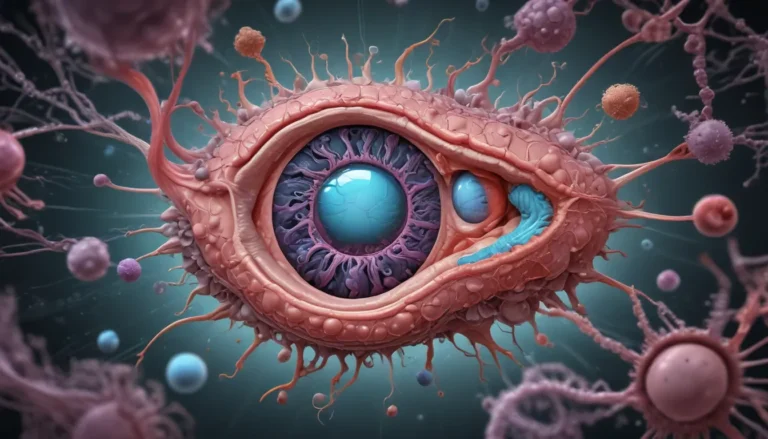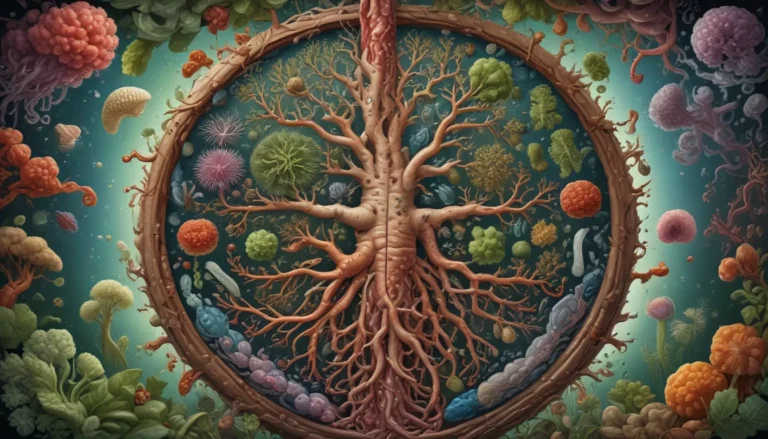A Note About Images: The images used in our articles are for illustration purposes only and may not exactly match the content. They are meant to engage readers, but the text should be relied upon for accurate information.
Food biotechnology has emerged as a revolutionary field that is transforming the way we produce, process, and consume food. Through the application of genetic engineering and molecular biology, scientists are now able to modify and enhance the genetic makeup of plants and animals, leading to improved crop yields, increased nutritional value, and enhanced resistance to pests and diseases. In this comprehensive guide, we will delve into 19 intriguing facts about food biotechnology, shedding light on the innovative methods and technologies used in this field and exploring its impact on our agricultural practices, food production systems, and diets.
The Role of Food Biotechnology in Enhancing Food Production
Food biotechnology utilizes various scientific techniques such as genetic engineering, gene editing, and tissue culture to improve and modify plants and animals for food production. By enhancing the traits of crops and livestock, food biotechnology enables the development of crops with increased yield, improved nutritional content, and enhanced resistance to pests and diseases.
- Genetic engineering, gene editing, and tissue culture are some of the methods used in food biotechnology to enhance the traits of crops and livestock.
- The development of crops resistant to pests and diseases and with improved nutritional content is a key focus of food biotechnology.
Understanding Genetically Modified Organisms (GMOs) in Food Biotechnology
Genetically modified organisms (GMOs) are one of the key applications of food biotechnology, created by inserting foreign genetic material into the DNA of organisms to express desirable traits. This technology has been instrumental in developing crops with resistance to herbicides, insects, and diseases, leading to improved overall crop productivity.
- GMOs are created by inserting foreign genetic material into the DNA of organisms to express desirable traits.
- The development of crops with resistance to herbicides, insects, and diseases is a key application of GMOs in food biotechnology.
Addressing Global Food Security Challenges Through Food Biotechnology
Food biotechnology plays a crucial role in addressing global food security challenges by developing genetically modified crops that are more resilient to adverse environmental conditions. By ensuring a stable food supply for a growing global population, especially in regions prone to droughts, floods, and other natural disasters, food biotechnology contributes significantly to global food security.
- Food biotechnology helps develop genetically modified crops that are more resilient to adverse environmental conditions, ensuring a stable food supply.
- By addressing global food security challenges, food biotechnology plays a vital role in ensuring food availability for a growing global population.
Enhancing Nutritional Value and Reducing Food Waste Through Food Biotechnology
Food biotechnology has the potential to improve the nutritional value of crops by enhancing their nutritional content, such as increasing the levels of vitamins, minerals, and essential nutrients. Additionally, through the modification of crops, food biotechnology can extend the shelf life of perishable food items, reducing spoilage and minimizing food waste.
- Food biotechnology can improve the nutritional value of crops by enhancing their nutritional content, such as increasing the levels of essential nutrients.
- By extending the shelf life of perishable food items, food biotechnology helps reduce food waste and promote sustainability in food production.
Sustainable Practices and Environmental Benefits of Food Biotechnology
Food biotechnology can contribute to reducing the use of chemical pesticides and fertilizers by genetically engineering crops with built-in resistance to pests and diseases. This sustainable and eco-friendly approach to agriculture not only reduces the environmental impact of farming practices but also promotes long-term environmental sustainability.
- Genetically engineering crops with built-in resistance to pests and diseases reduces the use of chemical pesticides and fertilizers.
- By promoting sustainable and eco-friendly farming practices, food biotechnology contributes to long-term environmental sustainability.
Embracing Innovation and Advancing Agriculture Through Food Biotechnology
Food biotechnology is a rapidly advancing field that offers tremendous potential for future innovation and advancements in agriculture. By continually exploring and expanding the possibilities of food biotechnology, scientists and researchers are leading to exciting advancements in crop improvement, food production, and sustainability, paving the way for a more sustainable and efficient food system.
- Food biotechnology offers tremendous potential for future innovation and advancements in agriculture.
- Scientists and researchers are continually exploring and expanding the possibilities of food biotechnology, driving exciting advancements in crop improvement and sustainability.
Conclusion
In conclusion, food biotechnology is a fascinating field that has the potential to transform the way we produce and consume food. By harnessing the power of genetic engineering and molecular biology, food biotechnology enables the development of crops with enhanced nutritional value, increased resistance to pests and diseases, and improved shelf life. While the field of food biotechnology offers numerous benefits for addressing global food security challenges and promoting sustainability in agriculture, it is essential to approach the topic with caution and awareness of ethical considerations and potential risks. Through regulation, transparency, and informed decision-making, we can ensure the responsible application of food biotechnology technologies.
FAQs
Q: What is food biotechnology?
A: Food biotechnology is the application of science and technology to improve the production, quality, and safety of food through techniques such as genetic engineering to modify the genetic material of plants and animals.
Q: Are genetically modified organisms (GMOs) safe to eat?
A: Scientific organizations such as the World Health Organization and the National Academy of Sciences have concluded that approved GMOs are safe to eat, although ongoing monitoring and evaluation of the long-term effects of GMO consumption are important.
Q: How does food biotechnology benefit the environment?
A: Food biotechnology can help reduce the environmental impact of agriculture by producing crops that require fewer pesticides, herbicides, and fertilizers, as well as developing crops with increased resistance to pests and diseases.
Q: Are there any ethical concerns associated with food biotechnology?
A: Yes, ethical concerns related to issues such as patenting of genetically modified organisms and potential impacts on biodiversity exist. Proper regulation and ethical frameworks are essential to address these concerns.
Q: How can consumers make informed choices about biotech food?
A: Consumers can educate themselves about biotech food technology, read labels, consider their values and concerns, support transparent labeling policies, and engage in discussions about the benefits and risks of biotech food to make informed choices.
Food biotechnology continues to offer exciting possibilities for innovation and advancement in agriculture, shaping a more sustainable and efficient food system for the future. Explore more about related topics like food safety, nutraceuticals, and genetic engineering to deepen your understanding of the fascinating world of food biotechnology and its impact on our daily lives. Join us in uncovering the wealth of knowledge waiting to be discovered in these captivating subjects.






